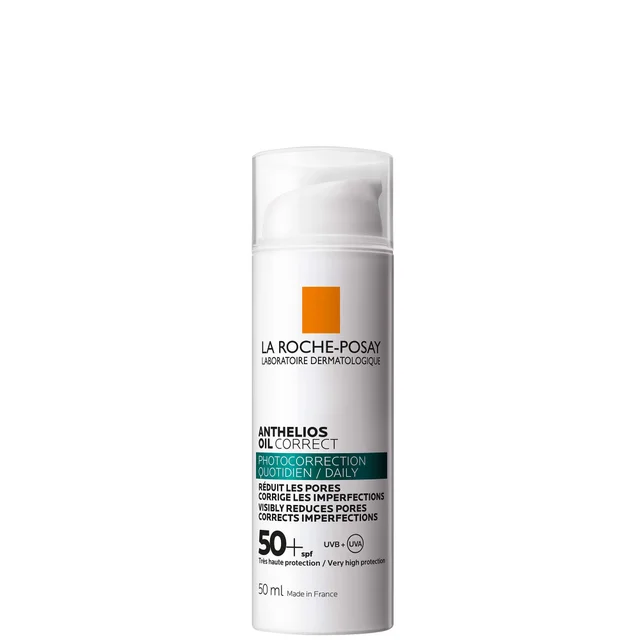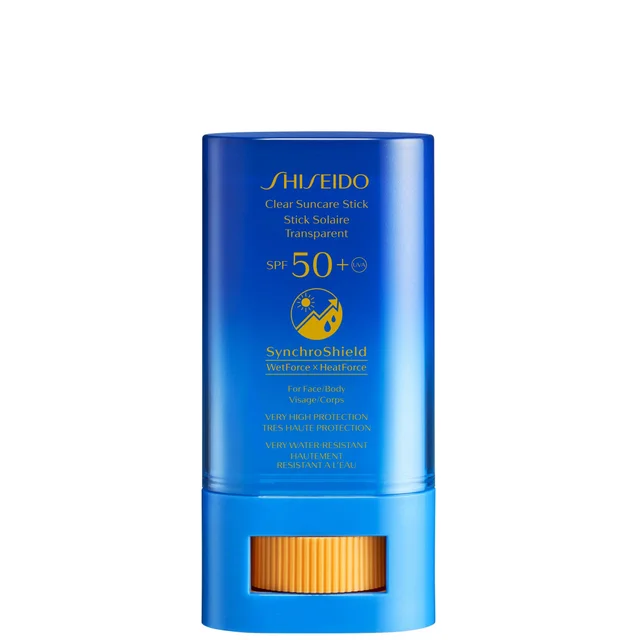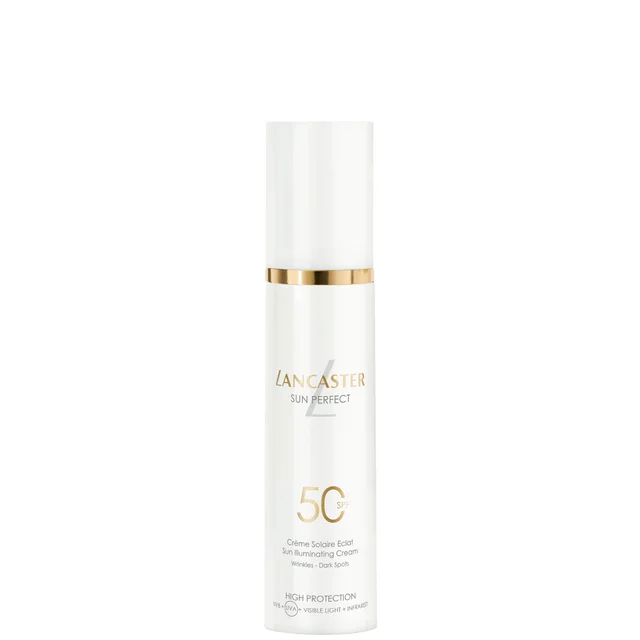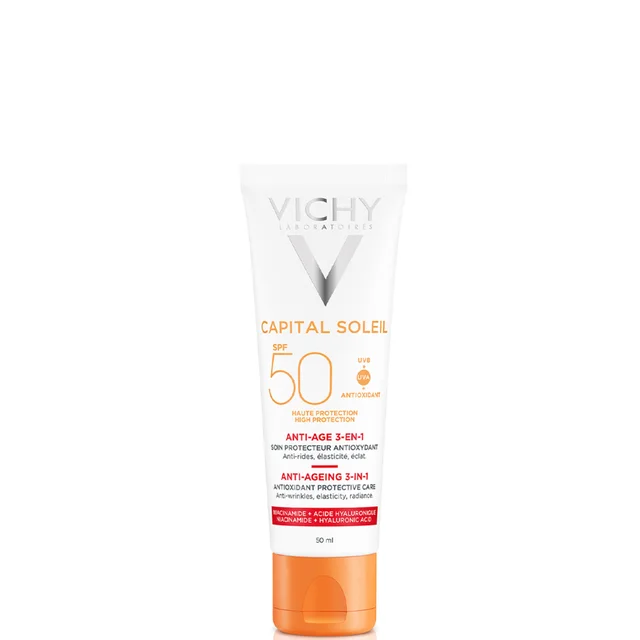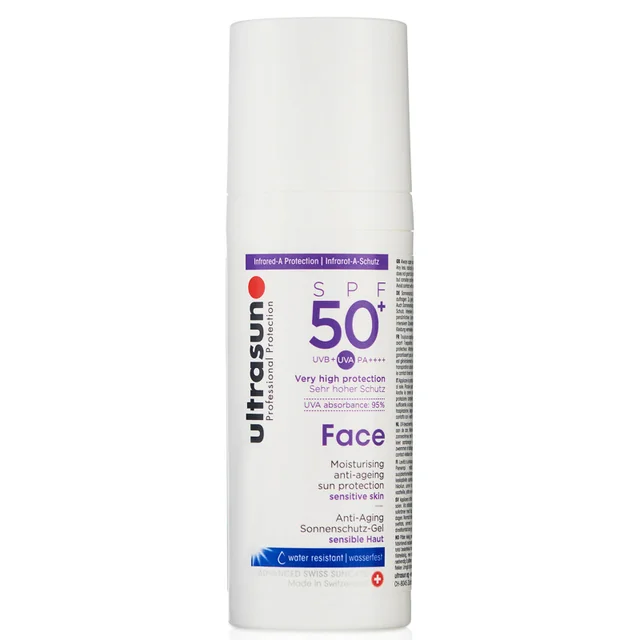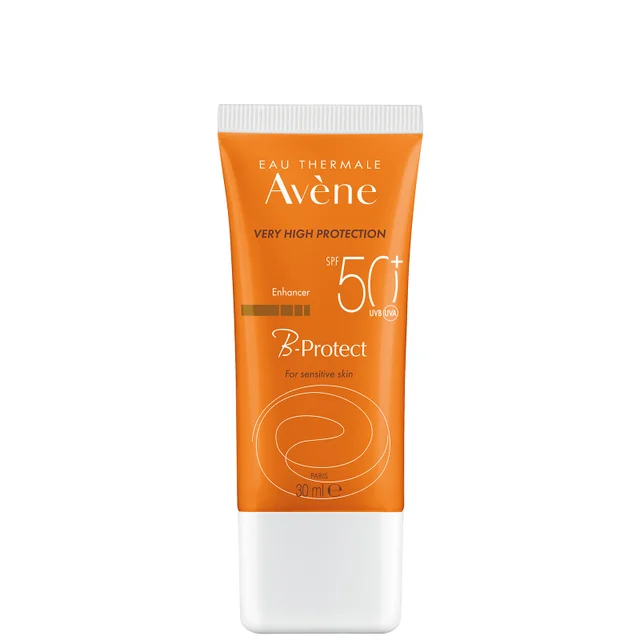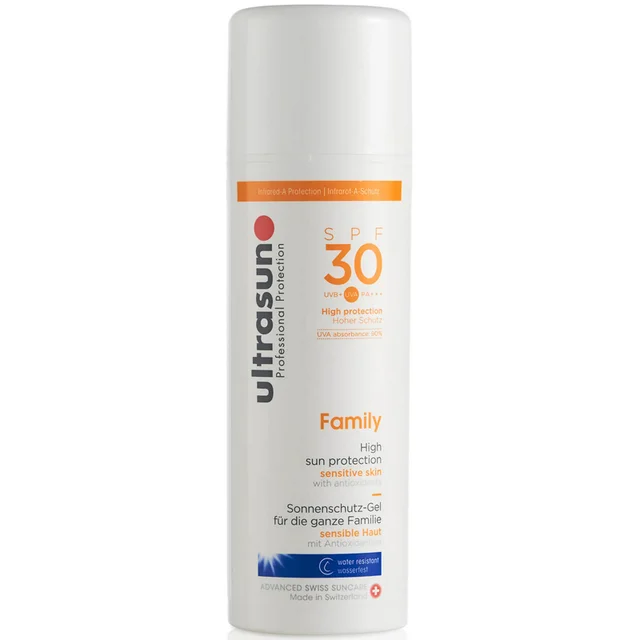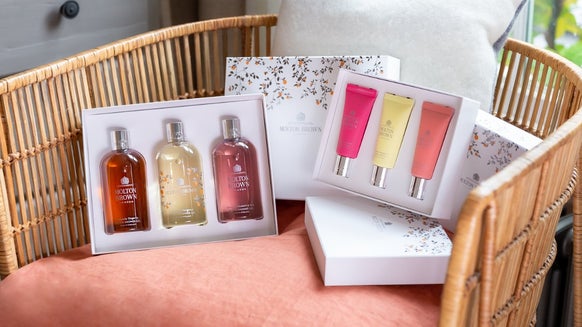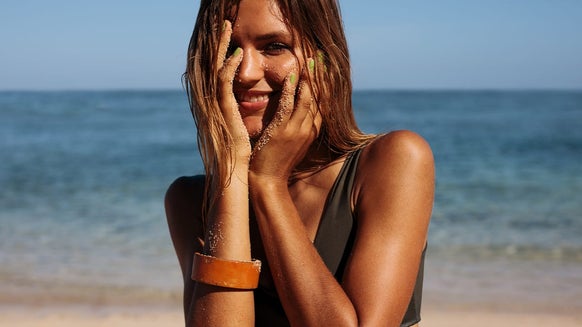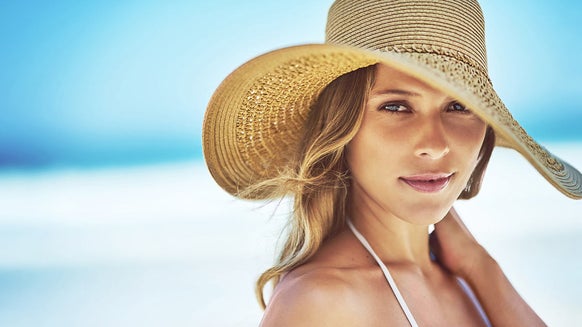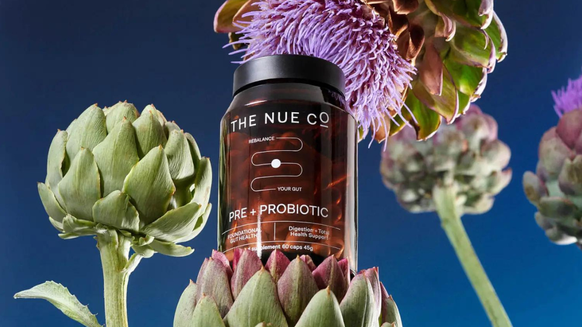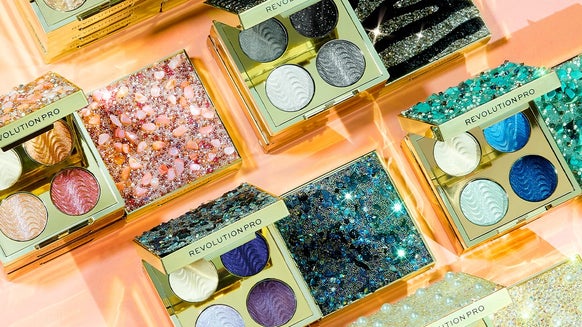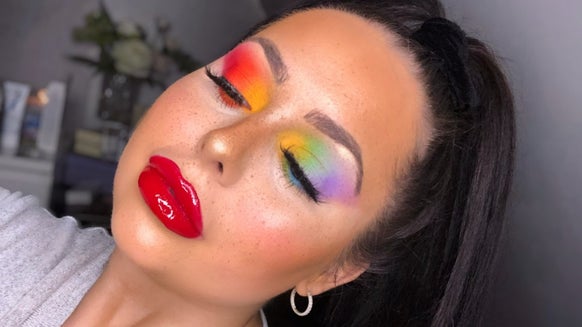Our expert SPF guide for every skin type
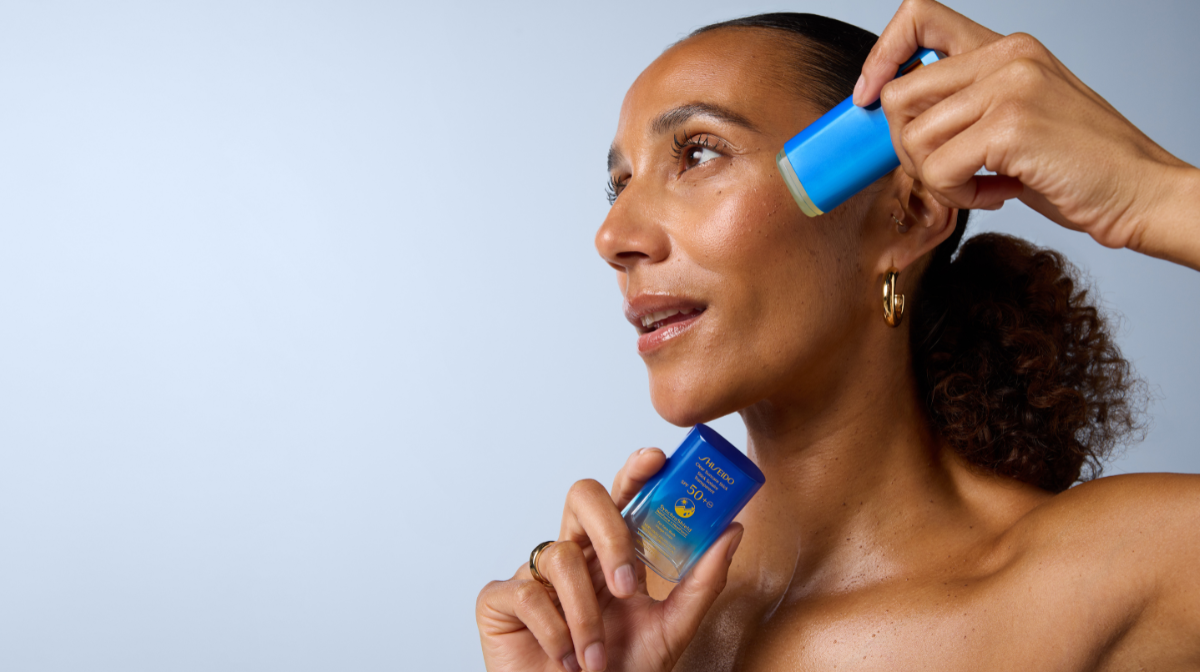
As the warm weather graces us with its presence once again, it’s important to remember how essential SPF is for our skin’s health. Although you (hopefully) are already taking expert advice and using an SPF every single day, in the hotter months we all need to up our game. This means a higher factor SPF for added protection and reapplying during prolonged sun exposure to make sure you are fully protected from the stronger UVA and UVB rays that contribute to skin damage and ageing.
Click here to shop our full range of suncare.
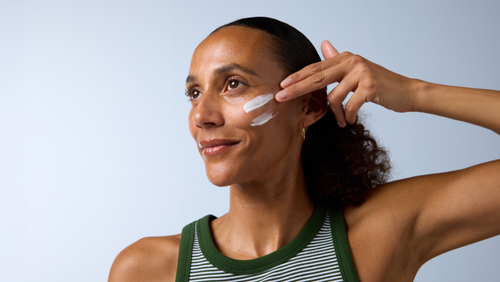
8 Things You Didn't Know About SPF and How It Works
Bust SPF myths and common misconceptions with our 101 guide to sun protection, with expert advice from Melanie Grant.
What is SPF?
"The SPF (Sun Protection Factor) is a measure of UVB protection. Protection against UVA is shown by either a star rating or by the PPD score (Pigment Protection Factor). A circled UVA logo on the sunscreen bottle means that the sunscreen meets EU requirements for UVA protection. When choosing a sunscreen, it is important to look for a high SPF value, such as 30 or 50+, and the circled UVA logo. This means that the product will give the best possible protection against sunburn and skin cancers, and will also protect against UVA radiation which causes skin aging" explains Dr Hiva Fassihi, One Welbeck Skin Health & Allergy London.
How does SPF work?
"Sunscreens are designed to protect the skin from the damaging effects of ultraviolet radiation (UVR). UVR is divided into UVA and UVB. UVB radiation only penetrates as far as the epidermis (the top layer of the skin) and can cause sunburn. It causes direct damage to the DNA in the skin cells and with repeated exposure can result in skin cancers. UVA penetrates deeper in to the skin and mostly causes skin aging (loss of elasticity, lines and pigmentation). UVA radiation is not blocked by clouds and can penetrate through window glass and clothing. Sunscreens protect from these harmful effects. In the short term, they protect from painful sunburn. In the long term, they help prevent skin cancer and slow down premature skin-aging" says Dr Hiva.
Do all skin types need SPF?
"I encourage all my patients to wear sunscreen every day, regardless of how bright and sunny it appears outside" stresses Dr Hiva. "It is important to remember that UVA, the main cause of skin aging, is present all year round, even on dull days. Fair skin types are at higher risk of sunburn and UVR damage, increasing their risk of developing skin cancers. However, it is important to note that darker skin types also need to protect as they are at risk of skin aging, although to a lesser extent, and pigmentary disorders".
When should SPF be applied?
"Sunscreen should be applied generously after cleansing in the mornings" recommends Dr Hiva. "Care should be taken to cover all exposed parts of the face and neck, including the delicate skin under the eyes. After waiting 15 minutes for the preparation to fully absorb into the skin, makeup can be applied on top".
Should you re-apply SPF throughout the day?
"The number of times your sunscreen should be reapplied over the course of the day is dependent on your activity level and the amount of sun exposure" explains Dr Hiva. "For example, on a dark wintery day in the office, application of sunscreen in the morning as part of your skin care routine is likely to suffice. On a bright sunny day, with outdoor activity planned at lunchtime, I would recommend reapplication of your sunscreen 20-30 minutes before going out. If you plan to spend the whole day out during the spring and summer months, reapplication is recommended every 2-3 hours" she advises.
"The reapplication is not because the sunscreen filters stop working after 2 hours. In fact, sunscreens are becoming more and more sophisticated. The filters are now photo-stable (ie. do not breakdown in sunlight) for up to 8 hours and the formulations allow more resistant and even skin coverage; however we may miss parts of the skin when applying sunscreen, and physical activity or swimming will result in rubbing off of the sunscreen from the skin. For these reason, I always suggest reapplying your sunscreen every couple of hours when out and about" adds Dr Hiva.
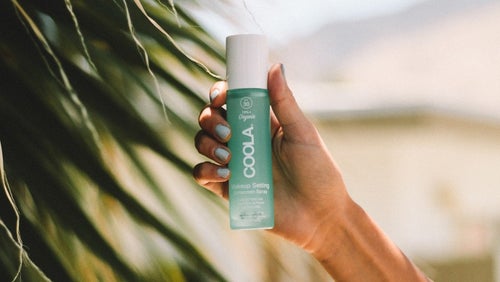
How to wear SPF over makeup
Want protection from UV damage without ruining your glam? Discover how to wear SPF over makeup with our selection of sun savvy products.
The best SPFs for every skin type
"With a broad range of textures and formulations now available, it has never been easier to incorporate a sunscreen into your daily skincare" says Dr Hiva. "The inclusion of additional steps between the cleansing and application sunscreen – ie. the filling in the sandwich, will depend on an individual’s specific skin concerns. There are an array of options depending on the concerns being addressed such as antioxidants, niacinamide, AHA/BHA acids, and azeliac acid".
The best SPFs for dry skin
LANEIGE Hydro UV Defence SPF
For an SPF that nourishes and hydrates, as well as layers beautifully under makeup, the LANEIGE Hydro UV Defence SPF is designed to be the SPF that can do it all. The gentle ingredients offer a refuge from sensitive, dry irritation, and the SPF 50+ protection creates a barrier from UVA and UVB rays. The formula is watery and lightweight, making it easy to absorb into the skin.
Ward off sunrays with the La Roche-Posay Anthelios UVMune 400 Invisible Fluid SPF50+ Sun Cream. This dermatologist-recommended formula contains an innovative filter that leaves an invisible protective shield on the skin, guarding it against UVA, UVB and ultra-long UVA rays. The sun cream is also water- and sweat-resistant, and works with any skin type or tone to offer daily support all year round.
Garnier Vitamin C Daily UV Brightening Fluid Invisible SPF 50+
Awaken your complexion with the Garnier Vitamin C Daily UV Invisible. This multi-purpose SPF is designed to perform as both a moisturiser and makeup primer whilst offering SPF 50+ coverage to protect skin from sun damage. The SPF is formulated with vitamin C to promote brighter-looking skin, whilst hyaluronic acid work and a blend of peptides work to hydrate the skin for a moisture boost.
The best SPFs for oily and blemish-prone skin
Dr Hiva's top pick: La Roche-Posay Anthelios Anti-Shine SPF50+ Sun Cream
"For oily and blemish prone skin, Anthelios Anti-Shine dry touch gel cream SPF50+ can be considered as this non-greasy formula is non-comedogenic and mattifying. Anthelios Invisible Fluid SPF50+ which feels invisible when applied can also be used. The Invisible Face Mist SPF50+ is also very light with anti-shine technology. It is used as a top-up formulation which is easy to reapply throughout the day, even over makeup".
Eucerin Oil Control Sun Gel Cream SPF 50+
Made for oily and blemish-prone skin, the Eucerin Oil Control Sun Gel Cream SPF50+ is a lightweight formula with an invisible finish that helps to prevent unwanted shine for up to 8 hours. Infused with absorbant micro-particles and L-carnitine, the cream boasts powerful technology that helps to maintain a dry-touch feel with a matte effect.
La Roche-Posay Anthelios Oil Correct Suncream SPF50
Working to shield skin from UV rays whilst also correcting the look of imperfections, the La Roche-Posay Anthelios Oil Correct Suncream SPF50 is a multi-benefit cream that supports the skin's health. Salicylic acid and niacinamide in the formula gently exfoliate to create a more even skin tone and reduce excess oil, whilst hydrating ingredients keep the skin healthy and radiant
The best SPFs for mature skin
Shiseido Clear Suncare Stick SPF 50+
Low-fuss SPF is a true summer saviour. Consider a mess-free SPF stick for the easiest sun protection imaginable. Transparent, water resistant, and with SPF 50+ protection, Shiseido understands our summer calendars are full and we are busy, so we need easy application that we can trust to keep us protected. As well as this, Shiseido trademark Profense CEL™ helps prevent the appearance of wrinkles and uneven skin tone caused by photo ageing, while powerful antioxidants defend skin from daily environmental aggressors.
Lancaster Exclusive Sun Perfect Sun Illuminating Cream
Hydrating and protecting, this SPF 50 is designed for year-round wear. The sunscreen aims to lend a brightened and unified finish to improve the appearance of pigmentation and dark spots. The skin is left feeling protected while appearing soft and luminous.
VICHY Idéal Soleil Anti-Ageing Sun Lotion
Bursting with antioxidant-rich black tea, vitamin c and mineralising thermal water, this lightweight, moisturising SPF helps to both protect the skin from UVA and UVB rays as well as helping to reverse any existing signs of ageing on the skin. Expect a more radiant and younger-looking complexion.
ELEMIS Pro-Collagen Skin Protection Fluid SPF50
Protect mature skin from the effects of sun damage with the ELEMIS Pro-Collagen Skin Protection Fluid SPF50. This brightening sunscreen is developed with an advanced blend of encapsulated UV filters that work to defend against fine lines and dark spots – both of which can be caused by sun exposure. Formulated with the brand’s patented padina pavonica algae extract, this protection fluid works to visibly plump the complexion, while lithops stem cells offer a moisture surge for the skin.
Ultrasun Face Anti-Ageing Lotion SPF 50+
Shield your skin from sun rays with the Ultrasun Face Anti-Ageing Lotion SPF 50+. This multi-purpose face lotion offers high sun protection as well as moisturising and anti-ageing benefits. The daily formula contains a blend of anti-ageing and safeguarding ingredients, including ectoin which works to help prevent premature photo ageing.
The best SPFs for sensitive skin
"It is really important for those with sensitive skin to protect from the damaging effects of UVR as chronic sun exposure can make the skin even more red and sensitive over the years" says Dr Hiva. "I would suggest choosing an sunscreen with no fragrance and minimal ingredients. Those with a higher contents of mineral (physical) sunscreen filters (often found in children’s sunscreens) are tolerated better by people with sensitive skin".
Garnier Ambre Solaire Ultra-Light Sensitive Sun Protection Face Fluid SPF50+
Formulated for sensitive skin types and dermatologically-tested, the Garnier Ambre Solaire Ultra-Light Sensitive Sun Protection Face Fluid SPF50+ is enriched with hyaluronic acid and vitamin E that help to keep the skin hydrated and comfortable. The broad spectrum SPF50+ protects against both UVA and UVB rays and sinks quickly into the skin.
Avène Very High Protection B-Protect SPF50+ Sun Cream for Sensitive Skin
This 3-in-1 formula from Avene contains sun protection, anti-pollution protection and offers a light tinted coverage to maintain a glowing and even complexion. The SPF50+ Sun Scream contains the brand's famous thermal spring water that helps keep sensitive skin hydrated and free from irritation and illuminates the skin with a veil of microencapsulated pigments.
Ultrasun Family SPF 30 - Super Sensitive
Protect yourself and the whole family with the Ultrasun Family SPF 30 Super Sensitive All-Day UVA/UVB Protection. This gentle formula is specifically designed for sensitive skin and is free from oils, emulsifiers and perfumes – making it perfect to use on delicate skin to prevent sun damage and reactions. What’s more, it’s suitable for children too!
Garnier Ambre Solaire Mini Sensitive Hypoallergenic Sun Protection Cream SPF50
Gently protect your complexion with the Garnier Ambre Solaire Mini Sensitive Hypoallergenic Sun Protection Cream SPF 50+. This hydrating formula is enriched with a skin-loving vitamin E complex, working to maintain your skin’s moisture levels during sun exposure for a healthy-looking complexion.

Discovering makeup in the 2010's era of full glam was always going to lead me to beauty writing. A lover of pop culture and language, my content is always rooted in modern day trends. My beauty holy grails are the LANEIGE Lip Glowy Balms, L'Occitane Shea Butter Hand Cream, detox masks for my skin, and any hair product that promises to repair, hydrate, and strengthen!





